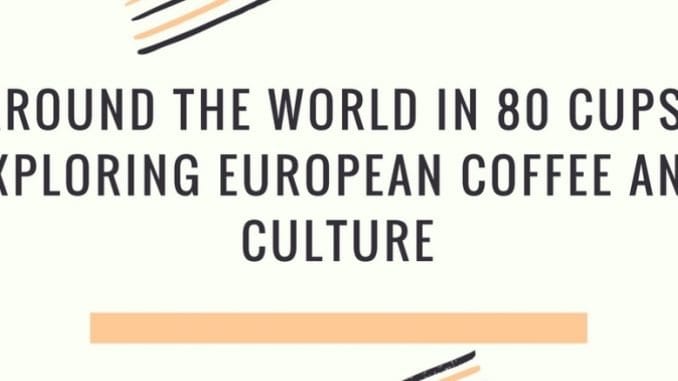
Writer Jason Huffnagle is traveling all across Europe, drinking coffee and sharing with us the cultures, recipes, and traditions of the beverage all across the continent. In this edition, he explores Copenhagen.
BY JASON HUFFNAGLE
SPECIAL TO BARISTA MAGAZINE
Photos courtesy of Jason Huffnagle
We’ve been running this series for a while! Catch up by checking out Jason’s visits to Edinburgh, London, Rome, Florence & Venice, Salzburg, Vienna, Budapest, Krakow, Warsaw, Prague, and Berlin.
Fueled by their love of bicycles and good coffee, Danes are purportedly some of the happiest people in the world—and after visiting Copenhagen, I could see why that might be the case. In a city where design is preeminent, one has the opportunity to see and appreciate all manner of innovative ways of living, everything from the architectural amalgamations of historic-modern structures to “highways” for cyclists that provide not only a safer space for biking but also a reduction in traffic congestion.
These are some of the ways in which contribute to Danes living the hygge lifestyle, defined by some as “a pleasant and highly valued everyday experience” that is often associated with warm, low lighting, fuzzy sweaters, and hot beverages. Embracing this sense of all encompassing coziness, I set out to explore the Danish capital’s specialty coffee scene, meeting some incredibly friendly and coffee-loving Danes en route.
The Coffee Collective
Started out of a garage in 2007, The Coffee Collective is widely considered the harbinger of third-wave coffee in Copenhagen. Run by dedicated coffee professionals, the Collective offers an impressive coffee-education program for employees and the general public alike. Although you can have their coffee in one of the many cafés across the city, or even by mail, they have “collectively” four shops of their own.
I visited the Collective’s Torvehallerne location—an area worth visiting itself. This upscale covered market is made entirely of steel and glass and has over 60 vendors between its two buildings. Once you’ve grabbed your coffee from the Collective, be sure to stop off at BRØD for some, as strange as this sounds, life-changing porridge.
Want the royal treatment? Take your coffee to-go and visit the nearby King’s Garden (Kongens Have) and the Rosenborg Slot, a Dutch-Renaissance style castle that houses many Royal Danish artifacts, including the country’s Crown Jewels.
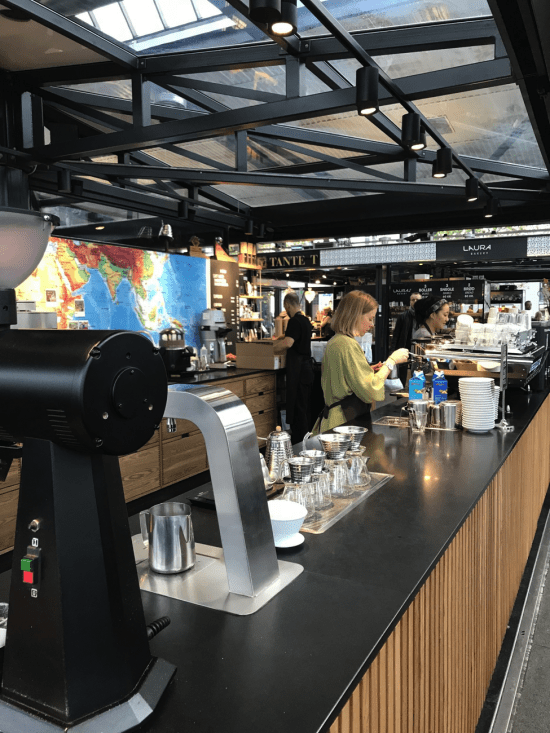
Democratic Coffee Bar
Democratic Coffee Bar is located on the first floor of Copenhagen’s main public library, and its bar stretches the full length of this narrow, one-room coffee shop. With its floor-to-ceiling windows and assortment of coffee table books, magazines, and newspapers, the space possesses a palpable sense of laid-backness.
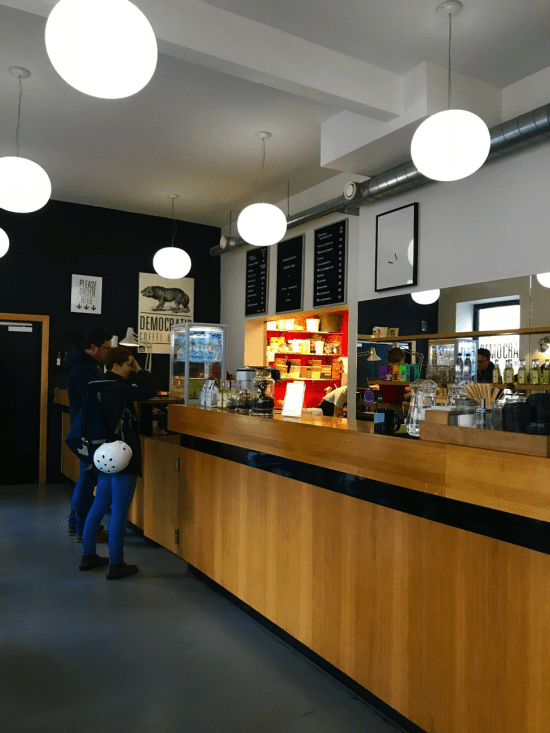
Democratic is also located near Copenhagen University, an area with many design-centric shops and restaurants. The Copenhagen Cathedral, a grand neoclassical structure that houses a famous set of statues of Christ and his apostles sculpted and donated by renowned Danish artist Bertel Thorvaldsen, is also close by.
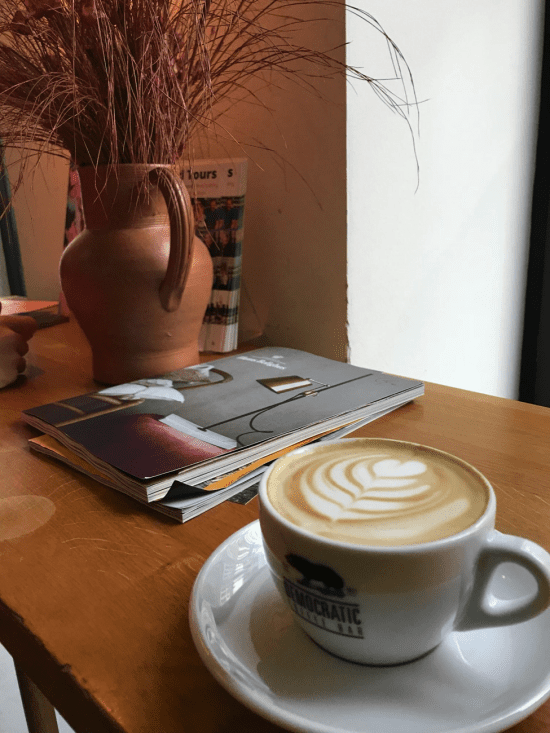
Forloren Espresso
Obsessed with specialty coffee and taking it slow, this self-described “not a café” is in the heart of Copenhagen. During my visit, I could not help but notice the several plaques and awards on its walls, including an award from the Specialty Coffee Association of Europe recognizing Forloren for its coffee-education program four years running. With a little over a dozen seats, Forloren Espresso is a cozy spot to hang out and meet some locals.
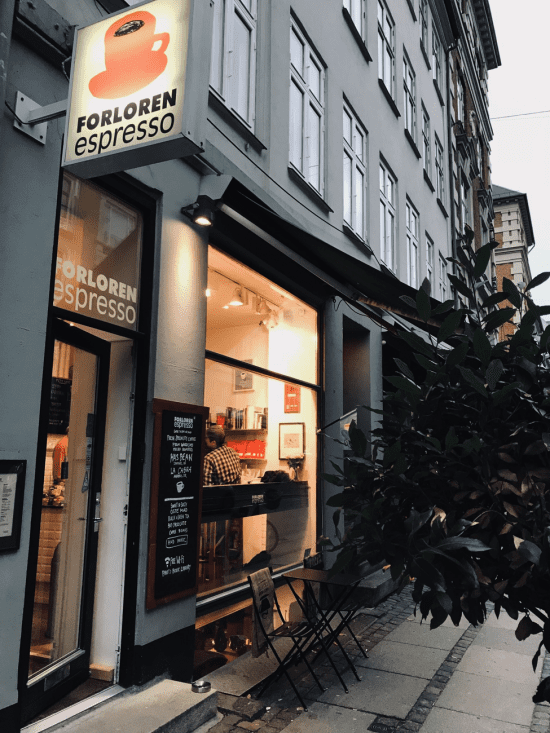
To the south of Forloren Espresso (and reasonably close) are two architectural marvels, both open to the general public: the Danish Jewish Museum, with its disjointed interior designed by world-renowned architect Daniel Libeskind, and the Royal Library—known by locals as the Black Diamond, largely due to the fact its outer, modern facade is made of highly polished black granite and juts out at several irregular angles. To the north of Forloren, one can visit the Royal Danish Palace complex (Amalienborg), the Danish Design Museum, and the Kastellet, a star-shaped fortress finished in 1664 that once kept strangers out but now, with its gardens and events, welcomes them in. Across the canal, one can see free-spirited Christiania, a self-proclaimed autonomous anarchist district, and the Copenhagen Opera House, which has an impressive canopy roof the size of three football fields (and regularly holds discounted performances for students).
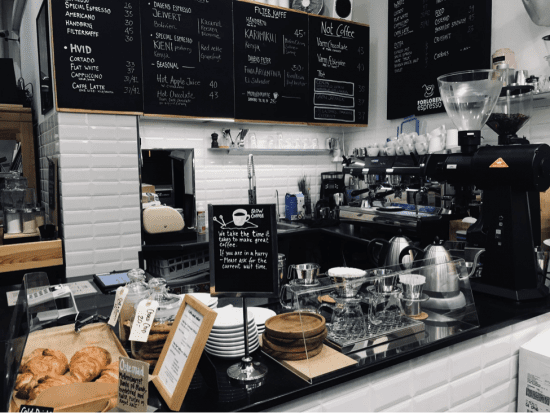
Rist Kaffebar
A small, neighborhood shop, Rist Kaffebar is a pleasant stop if you find yourself in Frederiksberg, which is not only a quaint and affluent neighborhood in Copenhagen, but also an independent municipality with its own mayor and municipal council. Rist serves beans roasted by The Coffee Collective and has a decent (rotating) breakfast and lunch menu, which includes Danish classics like the kartoffelmad, an open-faced sandwich made with buttered rye bread, slices of boiled potato, mayonnaise, chives, and a bit of salt and pepper.
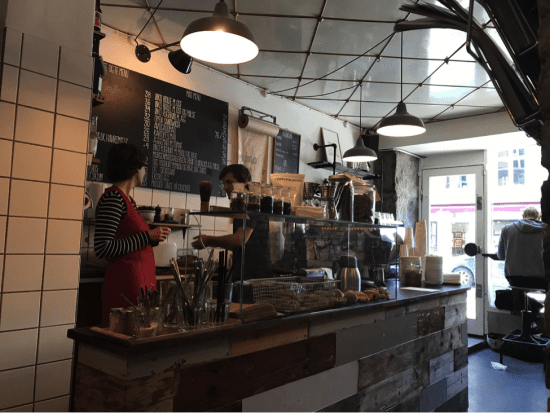
There are several attractions in this area, including the West Market, where I had some dang good curry at Zahida, and a few well-manicured public parks.
Bonus: Approximately 45 minutes east, and across the famous Øresund Bridge, I visited Malmö, Sweden, and made a stop at Solde Kaffeebar and Roastery, where I had an immaculate flat white. While Malmö has gotten some bad press in recent years, I found myself enamored with this quaint town, and enjoyed visiting its many churches, the Malmö Synagogue, and City Hall. Should you decide to make the trip yourself, be sure to have your passport on hand as you’ll need it to cross the Danish-Swedish border.
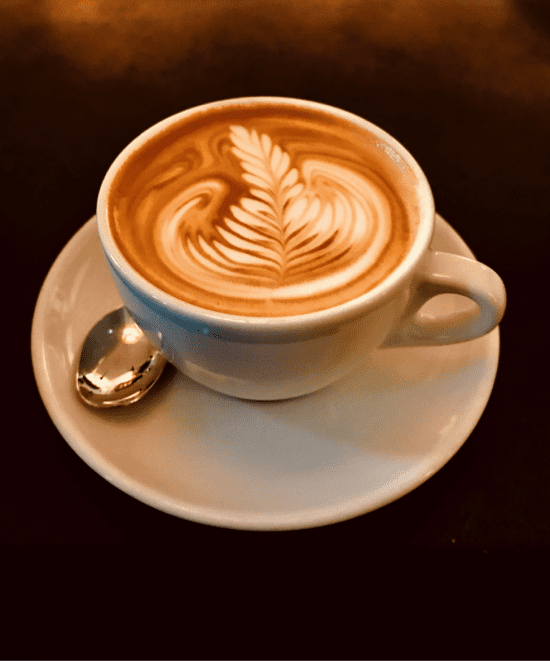
Continuing my westward trajectory, I’ll be hopping on a plane to Bruges, Belgium, to stay several days in the former home of two world-renowned painters, Jan van Eyck and Hans Memling.
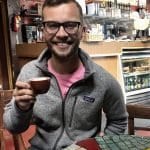 ABOUT THE AUTHOR
ABOUT THE AUTHOR
Jason Huffnagle is a freelance writer for Barista Magazine who has worked in coffee as a barista for six years. Having recently left his “adult job” in the U.S. Senate, the Alaska native is spending the next four months traveling throughout Europe. You can keep up with his coffee-fueled travels and other exploits by following him at @jasonhuffnagle on Twitter.

